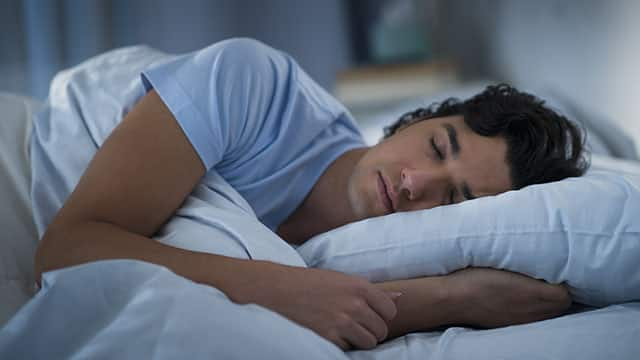If you find yourself often waking up to a sore jaw, headache, and your partner’s complaints about keeping them up all night with the sound of loud gnashing, you could be grinding your teeth. Teeth grinding, also known as bruxism, isn’t just an annoyance. It can cause some serious damage if left unchecked, but not to worry! We’ve got you covered. From symptoms to solutions, here’s what you need to know about your bruxism.
Teeth Grinding Symptoms
According to the Bruxism Association, the most common symptoms of teeth grinding are headaches and temporomandibular joint (TMJ) discomfort. In fact, the Bruxism Association says that people who grind their teeth are three times more likely to suffer from headaches.
These symptoms are often accompanied by various oral signs, such as abnormal tooth wear, fractured teeth and inflammation, and recession of gums.
- Increased tooth sensitivity due to diminished tooth enamel
- Jaw soreness or tight muscles around your jaw
- Chipped or loose teeth
- Headache beginning at your temples
Bruxism and teeth grinding have many symptoms that are similar to those of other conditions. Also, since teeth clenching or grinding occurs typically during sleep, it may be challenging to know if you’re doing it. Keep an open dialogue with your dentist if you are experiencing any combination of the symptoms.
How Bruxism Impacts Your Oral Health
According to a recent study in the Journal of Conservative Dentistry, when you grind or clench your teeth while sleeping, the clenching force can be much higher than during regular chewing. When you’re eating, the chewing motion is buffered by the food. But with sleep bruxism, your teeth receive the entire force. Bruxism can lead to:
- Wearing away of the tooth enamel and possibly the dentin leading to tooth sensitivity
- Cracking or chipped teeth, bridgework, or implants
- Tooth sensitivity
- Painful or loose teeth
- Facial pain due to clenching of jaw muscles
- Headaches
Teeth Grinding Causes
There are lots of things that could be causing you to grind your teeth. Some of the possible causes include:
Snoring, Sleep-Talking, and Sleep Apnea
Snoring, sleep talking, and even sleep apnea can play a role in developing bruxism. Sleep apnea affects your breathing during sleep. Talk to your healthcare provider for diagnosis and treatment.
Stress, Anger, and Anxiety Can Cause Bruxism
Anger, anxiety, frustration, and stress are four primary reasons people may grind their teeth as a coping method. Stress is mainly linked the most to bruxism, according to the American Dental Association (ADA). Exercise releases endorphins that decrease stress. Specific relaxation methods like listening to music, taking walks, and taking a warm bath are also helpful.
Lifestyle Can Contribute to Bruxism in Adults
Tobacco use and alcohol consumption can increase your risk of bruxism, especially if consumed before bed. This isn’t always the case, though, as bruxism is also common in children.
Medications and Disorders Can Lead to Bruxism
Bruxism has also been linked to side-effects from medications and antidepressants, as well as neurological conditions like Huntington’s Disease and Parkinson’s Disease. Consult your doctor in these cases.
While there is little evidence to directly attribute any specific cause, bruxism is found more frequently in people who snore or suffer from obstructive sleep apnea.
Teeth Grinding Prevention and Treatment
If you suspect you suffer from teeth grinding at night, keep track of symptoms and talk to your dental hygienist at your next appointment. Your dental hygienist is also trained to spot commons signs and symptoms. The good news is that you can alleviate one of the biggest causes of sleep bruxism right now with these tips:
Stay Relaxed
70% of bruxism sufferers clench and grind their teeth due to stress or anxiety. Before heading to bed, consider taking some time to wind down from the day. Take a hot shower or bubble bath, curl up with your favorite book, or practice meditation and mindfulness exercises. These can help you let go of the day’s negativity and allow your body to release any lingering tension. This is the easiest (and cheapest!) way to treat bruxism. If you’ve ever needed an excuse for a little extra “me time,” you’ve got one now!
Wear a Night Guard
If you are still having trouble teeth grinding, talk to your dentist about getting fitted for a nightguard or mandibular advancement device. Nightguards—also known as mouthguards, splints, or occlusal appliances—fit over your teeth and can help protect your teeth from grinding damage while reducing jaw muscle pain. Nightguards are available over the counter or custom-made by your dentist. While custom-fit mouth guards can be more expensive, they may be a better option, depending on the severity of your bruxism. Talk to your dentist to determine what’s the best fit.
Mandibular Advancement Devices
Mandibular advancement devices are specially fitted appliances to bring your bottom jaw forward while you sleep. These are ideal for treating bruxism when it’s most likely caused by a sleep disorder. They also help manage snoring and sleep apnea. Unfortunately, no type of night guards or device can cure your bruxism. Still, they can help redistribute the grinding force and keep your teeth from suffering the consequences.
If bruxism has led to broken fillings, crowns, worn down, or fractured teeth, your dentist may need to restore your teeth with new fillings or crowns. Your dentist may recommend orthodontic treatment to adjust your bite or correct tooth misalignment. Stress reduction methods are other options you can start today!
Putting an end to teeth grinding can help alleviate pain, preserve your teeth, and keep you smiling with confidence. Talk to your dentist to find the best treatment for you.
This article is intended to promote understanding of and knowledge about general oral health topics. It is not intended to be a substitute for professional advice, diagnosis or treatment. Always seek the advice of your dentist or other qualified healthcare provider with any questions you may have regarding a medical condition or treatment.
ORAL HEALTH QUIZ
What's behind your smile?
Take our Oral Health assessment to get the most from your oral care routine
ORAL HEALTH QUIZ
What's behind your smile?
Take our Oral Health assessment to get the most from your oral care routine
Join Us
Get the best of your oral health routine and take it to the next level with expert advice, recommendations, products and solutions and special offers.
Join Us
Get the best of your oral health routine and take it to the next level with expert advice, recommendations, products and solutions and special offers.















